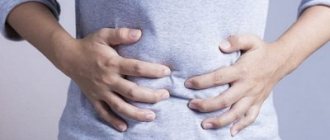How to get out of depression yourself - advice to a woman
According to statistics, women suffer from depression 2 times more often than men. This is due to greater emotionality and changing hormonal levels during the menstrual cycle. Due to the fact that women more often pay attention to their mental health, at the early stages of depressive disorder they are able to cope with it on their own.
6 rules for getting out of depression for a woman:
1. Positive emotions - they should be bright and strong. It’s better to put off ordinary hobbies or walks for now and try to organize an extreme event: flying in a wind tunnel, skydiving, go-karting, paintball and others. Such events give very vivid impressions and help you begin to appreciate life.
2. Physical activity - morning exercises or jogging does not take much time, but it promotes the production of neurotransmitters - “joy” hormones. Evening exercise improves sleep and relieves stress accumulated during the day. It is best to invite friends to play sports and ask them to join you. This will increase motivation, make you feel important and provide an opportunity to socialize once again.
3. Leisure – if your previous hobbies do not bring you pleasure, you should try to find new ones. It’s worth going to master classes, exhibitions, and trial classes.
4. Proper nutrition - the body spends a lot of energy digesting fatty foods, which is completely inappropriate for depression. It is better to eat light dishes, but varied. It is important not to overeat.
5. Daily routine and sleep - rest is very necessary for any illness, including depression. Getting up and going to bed at the same time, sleeping at least 8 hours a day will help cope with weakness and give the body a signal that everything is fine, predictable and safe.
6. Relaxation - every day it is recommended to devote at least 2 minutes to breathing practices and another 7 minutes of relaxation according to Jacobson. This will help calm the stress centers in the brain and relieve excessive anxiety.
These rules seem simple, but in fact, even for a healthy person, it is not so easy to follow them. Therefore, a depressed woman needs the support of loved ones, a sense of self-worth and maximum participation in her life. Then you can cope with the disease on your own. If the symptoms do not become weaker 2 weeks after starting to follow the rules, you should seek help from a specialist.
Depressive neurosis (dysthymia, neurotic depression)
In the classic case, depressive neurosis is characterized by a triad of typical symptoms: decreased vital activity and even some general lethargy, depressed mood, slowed thinking and speech. At the onset of the disease, low mood and general weakness are combined with various vegetative-somatic symptoms: dizziness, palpitations, blood pressure fluctuations, decreased appetite, and functional disorders of the gastrointestinal tract. As a rule, these manifestations force patients to visit a therapist, who prescribes symptomatic therapy.
However, despite the therapeutic treatment, in patients with neurotic depression the feeling of weakness progresses, persistent arterial hypotension develops, and spastic colitis often occurs. Patients note an even greater deterioration in mood, constant sadness and apathy, and a lack of positive emotions from joyful events.
Typically there is a decrease in motor activity, poor facial expressions, a slow pace of thinking, quiet and slow speech. Decreased vital activity and apathy manifest themselves mainly when choosing entertainment or when it is necessary to contact someone, often without affecting the patient’s professional activities. On the contrary, many patients experience a “flight to work” (especially if the causative situation is related to family relationships).
In most cases, depressive neurosis causes sleep disturbances. The most typical symptoms are difficulty falling asleep and waking up at night, accompanied by palpitations and anxiety. However, unlike hypochondriacal neurosis, they do not lead the patient to fixate on unpleasant sensations in the cardiac region. In the morning, patients with depressive neurosis note weakness and weakness characteristic of neurasthenia. They do not have the increased anxiety and morning sickness typical of depressive disorder.
Unlike classical (psychotic) depression, with depressive neurosis the clinical symptoms do not reach the level of psychosis, but have a less profound neurotic severity. Patients with depressive neurosis are able to maintain self-control, adequately perceive what is happening and do not lose contact with others. They do not have suicidal thoughts and are optimistic about the future.
Depressive neurosis is not accompanied by a sad, unpromising view of the future, as is the case with psychotic depression. On the contrary, when thinking about their plans, patients do not seem to take into account the current unfavorable situation. This feature of psychogenic depression has been identified by a number of authors as a symptom of “hope for a bright future.”
How to get out of depression yourself - advice to a man
Men suffer from depression 2 times less often than women, according to official statistics. But scientists believe that most cases of the disease are simply not diagnosed, and the problem itself is just as common. Since men find it difficult to seek help, especially from doctors, they may try to get out of depression on their own.
There are 5 effective ways to help yourself cope with depression:
1. Emotions - men get so used to controlling emotions that they gradually lose the ability not only to be sad, but also to be happy. Emotional release will help you get out of depression: shooting range, hunting trips, off-road driving, extreme sports. These are great ways to relieve tension and release emotions that have been carefully and long suppressed.
2. Sports. For men, sporting achievements are no less important than personal ones. Active sports not only increase the level of “joy” hormones, but also testosterone. This is especially important for depression, because many people note decreased libido against the background of it, do not understand what this symptom is associated with, and have a hard time experiencing this condition.
3. Hobbies are a very important component of a man’s life, which is often forgotten in the hustle and bustle of everyday life. If you bring it back, the symptoms of depression often subside very quickly, because the person begins to enjoy life again.
4. Nutrition – fatty meats and rich dishes will have to be temporarily postponed so as not to burden the body, which is already poorly coping. But this does not mean completely giving up everything you love about food. You can prepare shish kebab from chicken breast or thigh fillet; for steak, choose a lean piece rather than marbled beef; cook shawarma at home with soy-sour cream sauce instead of mayonnaise.
5. Routine – sleep and daily routine are more important than ever. It is recommended to go to bed no later than 23:00 and sleep at least 8 hours. It is also necessary to observe sleep hygiene: an hour before bedtime, no gadgets, no work or heart-to-heart conversations in bed, only sleep or intimacy.
Men are less likely to be willing to perform meditation and other relaxing techniques, but they will also be relevant for them. Relaxation according to Jacobson in the morning after waking up and before bed will significantly reduce anxiety and tension, and breathing practices in the middle of the day will help you relax at work and not overwork.
Diagnosis and treatment of depressive neurosis in
The Neopsi Mental Health Center employs qualified doctors with extensive practical and scientific experience in the study and treatment of mental disorders. An accurately established diagnosis allows you to develop an individual treatment plan, taking into account all the features of the patient’s development of depressive neurosis and the presence of other diseases.
Treatment is carried out comprehensively, using modern methods of psychotherapy, pharmacotherapy, and physiotherapy, since the most advanced methods of psychopharmacotherapy without psychotherapeutic influence do not provide a sustainable effect. The main task of the psychotherapist is to identify during the conversation, and then change the patient’s attitude towards the traumatic situation that became the catalyst for the disease, to form a new view of it. Whenever possible, the Center’s doctors strive to limit the prescription of medications, using the latest and traditional methods of psychotherapeutic influence, which may include individual existential and analytical therapy, hypnosis, auto-training, cognitive-behavioral training, etc.
Various approaches are used depending on the individual characteristics of the patient:
- suggestive using suggestion (including Ericksonian and traditional hypnotherapy);
- psychodynamic (classical psychoanalysis based on the theory of the unconscious);
- rational (explanation and logical persuasion);
- existential (understanding your life through an internal search - knowledge of your individuality, true needs and meaning to liberation from the problem), etc.
Comprehensive and professional treatment of depressive neuroses in our Center guarantees a quick and complete recovery of patients. Relieve the burden of unresolved problems and regain a happy life with the help of the Neopsy Mental Health Center. Make an appointment by calling the specified phone number, or through the website services.
Hormones - how do they affect well-being and mood?
16.09.2019
hormone is responsible for every mood and emotion . For health, it is necessary to maintain a balance of each of them. Today you will learn what hormones and what they are responsible for.
Serotonin
This hormone is responsible for the production of happiness, good mood, and it also regulates vascular tone and labor. This substance also promotes arousal. blood clotting will improve . And if the level of the hormone decreases significantly, this can lead to various mental illnesses and headaches, productivity will also decrease, and the need for sweets will appear.
You can increase your serotonin levels with the following foods: cheese, dates, tomatoes, cocoa, plums and many others. Artificially increasing the hormone (drug use) can cause death.
Endorphins and dopamine
Endorphins are hormones that promote a good mood and reduce pain. Interesting fact: the structure of endorphins is similar to the structure of various drugs (opiates).
Dopamine also has a positive effect on mood. It is produced in the brain when achieving any goals; this hormone motivates for further success. Dopamine levels rise when you eat your favorite, tasty food. Due to a lack of dopamine, a person may develop apathy. Smoking and alcohol reduce the level of the hormone , and magnesium and zinc raise it.
Estrogen and testosterone
These sex hormones influence the emotional state. Estrogen is a female hormone that contributes to the formation of a female figure during puberty. Low levels of this substance can provoke nervousness, frequent mood swings, tearfulness and aggression. Estrogen is responsible for the appearance of women and changes in the level of this hormone will affect many factors. For example, the condition of your hair and skin may worsen.
Testosterone is a male hormone that influences puberty. But this hormone is important not only for males, but also for women. Due to insufficient testosterone levels, a person becomes soft, sensitive and emotional.
Oxytocin
This substance is called the “love hormone” because it promotes positive feelings towards your partner and children. A sufficient level of oxytocin improves mood, normalizes sleep and calms nerves . Oxytocin also helps breastfeeding mothers release milk. The level of this hormone increases when caring for loved ones or when eating certain foods.
Thyroid hormones
This substance affects the pulse, or rather speeds it up. The hormone also has a significant effect on mood; if thyroid levels decrease, the person will experience apathy, weakness, and reluctance to do anything. Too high a hormone will contribute to a bad mood, overexcitation, rapid fatigue and nervousness.
Published in Endocrinology Premium Clinic
What is neurosis?
Neurosis is a psychogenic and stress-induced disorder of the mental apparatus. The emergence of neurosis is provoked not by an event, but by our attitude towards it.
Clients who seek advice from a psychologist about neurotic disorders name the following most common causes of neuroses:
- socio-economic problems in life that cause a feeling of hopelessness;
- constant psychological stress;
- high expectations leading to disappointment.
At the same time, neurosis for most people is a set of obsessive destabilizing thoughts and physiological symptoms (heart pain, tachycardia, panic attack or other manifestations) that do not allow them to live a full life and are periodically repeated. In reality, all these symptoms reflect the internal psychological state of a person and are an expression of his worldview.











